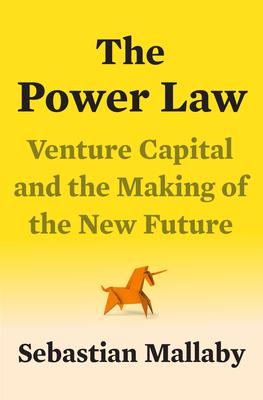
The Power Law: Inside Silicon Valley`s Venture Capital Machine
Book genres
Business, Nonfiction, Finance, History, Economics, Technology, Entrepreneurship, Journalism, Money, Science
Topics
Venture Capital, Entrepreneurship, Investing in Startups, Venture Capital Strategies, Business Innovation
Innovations rarely come from "experts." Elon Musk was not an "electric car person" before he started Tesla. When it comes to improbable innovations, which are the only innovations that really matter, a legendary tech VC told Sebastian Mallaby, the future can`t be predicted, it can only be discovered, through iterative venture-backed experiments. It is the nature of the game that most of these experiments will fail, but a very few successes will succeed at such a scale that they will more than make up for everything else. That extreme ratio of success and failure is the power law that drives the VC sector, and all of Silicon Valley, and the wider tech sector shaped in its image. The implications of that power law echo around the world.
In The Power Law, Sebastian Mallaby has parlayed unprecedented access to the most successful venture capitalists of all time - the key figures at Sequoia, Kleiner Perkins, Accel, Benchmark, and Andreessen Horowitz, among others--into a riveting blend of storytelling and analysis that unfurls the whole history of incubating tech companies, in the Valley and ultimately all over the world. We learn the unvarnished truth, often for the first time, about some of the most iconic successes and infamous disasters in Valley history, from the comedy of errors that was the birth of Apple to the avalanche of venture money that fostered hubris at WeWork and Uber. We`re taken inside the different strategic models of the storied venture firms, their virtues and drawbacks. We see the impact of culture, within VC partnerships and the companies they nurture--the importance of consciously tending it, and the disasters that ensue when power is concentrated in the wrong hands.
VCs` relentless search for power-law grand slams brews an obsession with the ideal of the lone entrepreneur-genius, and companies seen as potential unicorns are given intoxicating amounts of power, with sometimes disastrous results. On a deeper, more systemic level, the need to make outsized bets on unproven talent reinforces bias that channels money and support to, e.g., a certain kind of white guy from Stanford, with women and minorities still represented, within VCs themselves and the companies they support, at woefully low levels. This doesn`t just have social justice implications: China`s homegrown VC sector, having learned at the Valley`s feet, is exploding, and in short order now has far more women VC heads than America has ever had. Still and all, Silicon Valley VC remains the most successful and influential incubator of business innovation in the world: it is not where ideas come from so much as where they go, to become the products and companies that create the future. Of all the people in the world gambling on the future, this group has made, not just a science of it, but many competing sciences, and The Power Law, by taking us so deeply inside their game, give us the benefit of thinking more keenly about our own future through their eyes.